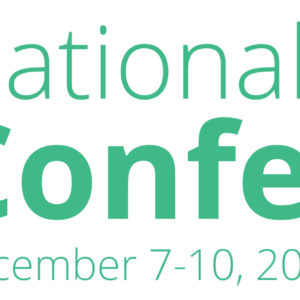Here’s the next in our series of posts meant to prepare you for the National Sex Ed Conference. This week, we spotlight Al Vernacchio, M.S.Ed., a sexuality educator who will be speaking about how best to approach puberty education.
1. Can you give me a quick rundown of what keeps you busiest these days?
I am a full-time high school teacher at Friends’ Central School in Wynnewood, PA (just outside of Philadelphia). I am the school’s Sexuality Educator and also chair of the English Department. I also do a lot of traveling around the country, speaking about healthy adolescent sexuality at high schools, colleges, and conferences.
2. What are your main areas of interest within the field of sexuality? What would you consider your special niche?
My main interest is in helping adolescents develop lifelong healthy sexuality. That also means doing a lot of parent and community education around what healthy sexuality is and how we can support young people on their journeys. I come to sexuality education from a sex-positive, pleasure-inclusive, social justice-based perspective. All of my work starts with the assumption that our sexuality is a fundamental force for good in the world.
As to my special niche, that would have to be the pizza model! My TED talk, “Sex Needs a New Metaphor: Here’s One,” introduces my idea of replacing the baseball model of sex with one based on pizza. It has over 1,600,000 views!
3. What has most informed your trajectory within this field?
My undergraduate degree is in Theology. I often say that I got to sex through religion. People think that’s a joke, but it’s true. Early in my life, I realized I was both gay and deeply religious. I set out to explore how sexuality and spirituality can dialogue and work together, rather than being seen as opposing forces. My first teaching job was in an all-boys Catholic high school, where I taught religion. Human sexuality was a tiny unit tacked on at the end of the year in my course. Over the seven years I was at that school, I grew the human sexuality component into a one-semester, required course for all ninth graders. Although I no longer teach religion classes, I still work to ensure my students see sexuality and spirituality as allies rather than adversaries.
4. Where did this metaphor of puberty as a time of developing superpowers come from? Could you give a few examples of how you might explain some of these superpowers to young students, without giving too much away?
Too many puberty education programs (intentionally or not) problematize puberty. Kids often get told that the changes happening to their bodies are strange, possibly scary, and fraught with potential problems (like rogue erections or the unexpected onset of a period). Very few young kids I know look forward to puberty. I want to reframe that discussion so that kids feel powerful when they move into puberty, rather than feeling out of control, as they often do.
Every kid knows the story of some superhero who developed amazing abilities, had to learn to control them, and then set out to use those abilities for good. I think if we helped younger kids think about puberty this way, it might be a more exciting and less scary time for them. I also think it’s empowering for kids to think about how to use these new “powers” they’re developing, and to think about some of the choices they can make with these new abilities. Most kids will want to be a puberty hero rather than a puberty villain.
5. What is the main takeaway you hope conference attendees will get from your presentation?
I’m hoping for two main takeaways, one content-based and one pedagogical. I’ve addressed the content above. I want to frame puberty as an exciting, powerful time of life when kids can be empowered to make choices about their abilities.
On the pedagogical side, I hope to inspire other educators to develop fun, interactive, developmentally appropriate, and positive ways to teach kids about human sexuality. We’ve got to be able to look at every lesson we teach and ask ourselves whether we’re coming at the topic from a negative, fear-based place or a positive, force-for-good place. I’m all about living and teaching in that positive space.



